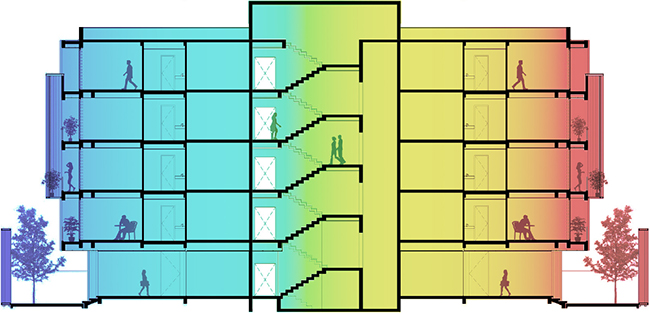In 2015, ‘Housing for all by 2022’, a large-scale housing initiative to provide quality affordable housing to the lower economic section by 2022, was launched by the Indian government. As of now, the energy consumption in the affordable housing units is low, but with the increase in income and comfort expectations, that scenario is likely to change. Along with the initiative to provide housing, the government has also taken steps towards reducing energy consumption, one of which was Eco-Niwas Samhita. It was launched with an aim to enhance thermal comfort inside residences as well as reduce external heat gains into the residential buildings.
Overview
Thermal comfort has a direct impact on energy consumption. ANSI/ASHRAE Standard 55 mentions about predictive and adaptive model for thermal comfort. The predictive model does not take into account the ability of the occupant to make himself comfortable by adapting to the surrounding environment by either controlling the fan/AC or adding/removing clothes. An adaptive model of thermal comfort recognizes that the thermal comfort requirements of people depend on their past and present context and that these vary with the outdoor environmental conditions of their location.
This concept can play a major role in reducing energy use whilst maintaining the comfort, productivity, and well-being of occupants.

Aim
This study aimed to develop a single nation-wide adaptive thermal comfort model.
Objectives:
Task Schedule
Task 1: Setting up logistics
Task 2: Gathering data
Task 3: Assuring data quality
Task 4: Conducting data analysis

Publications: